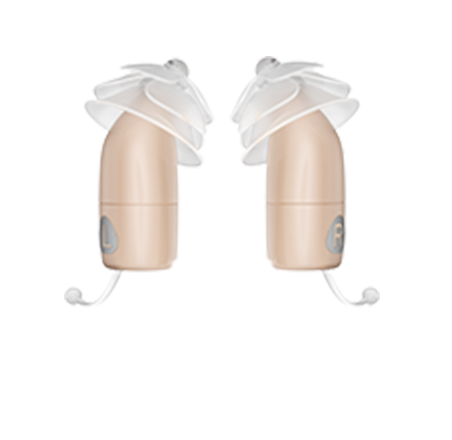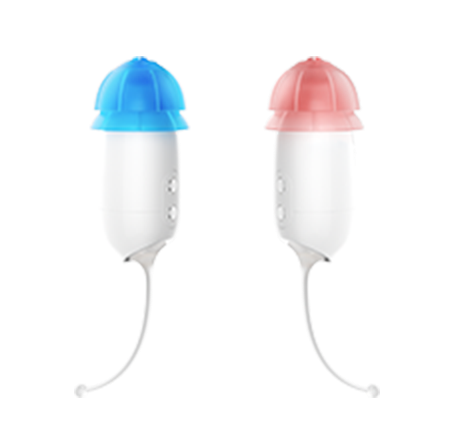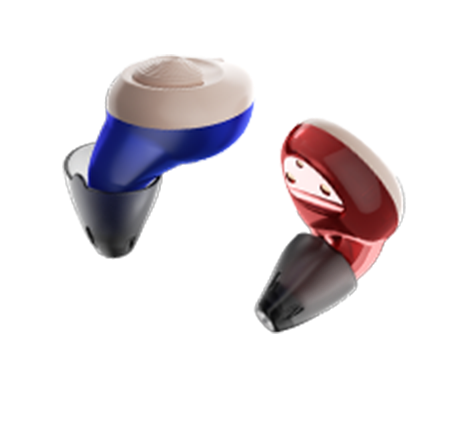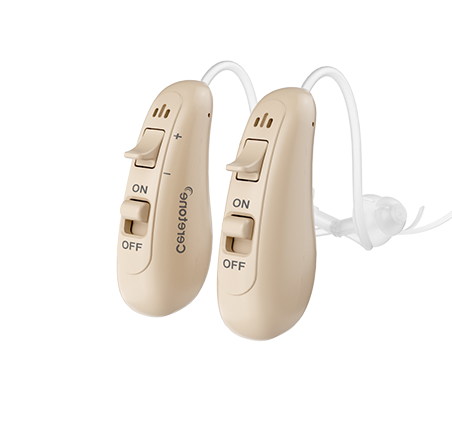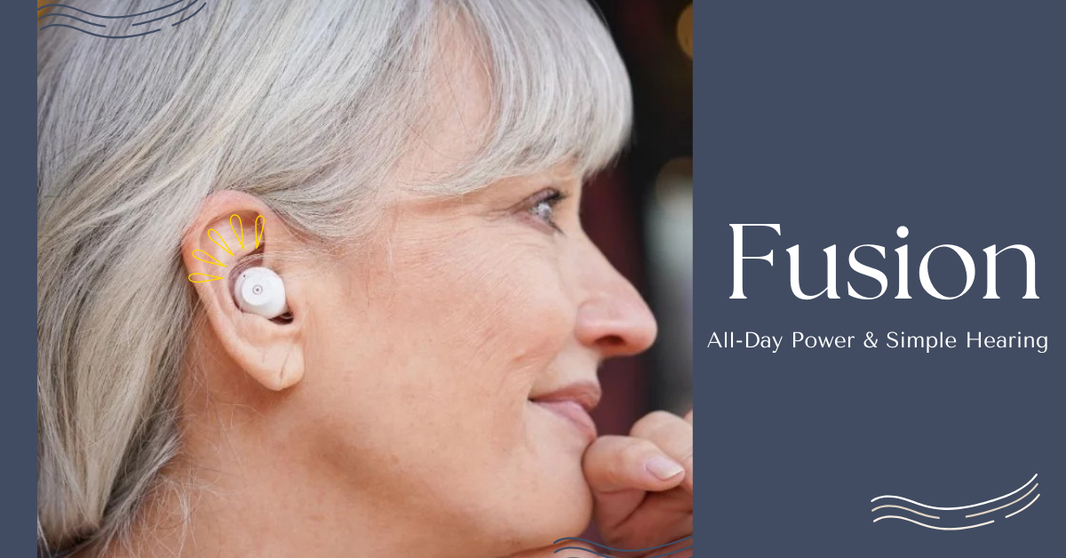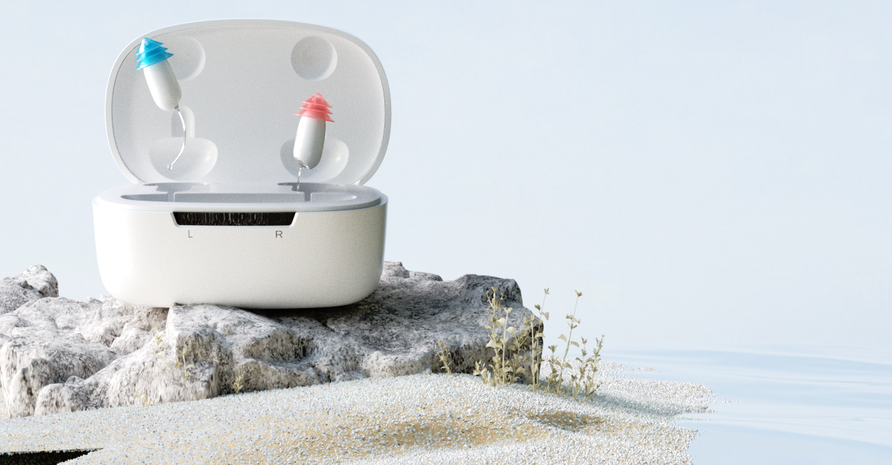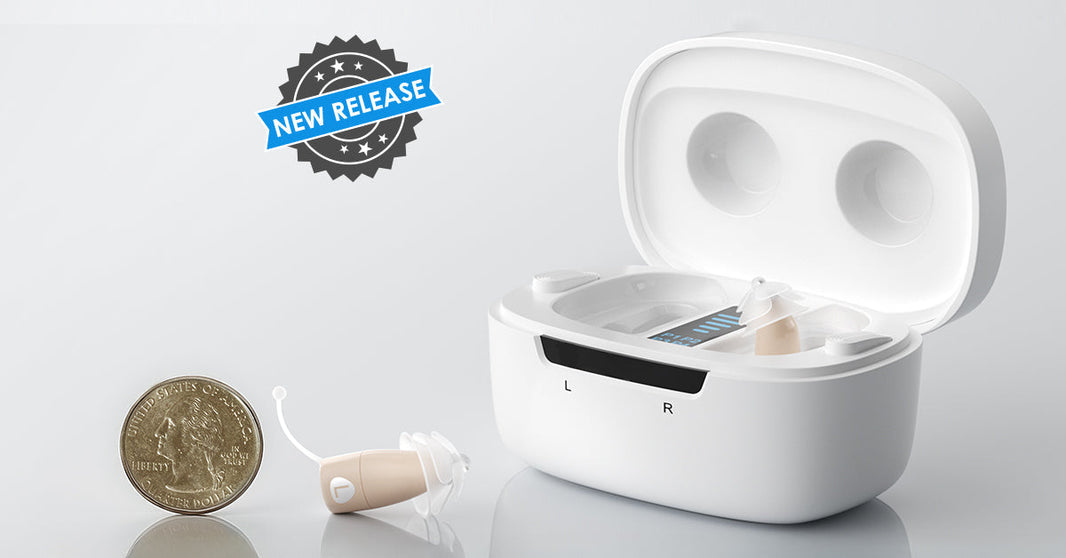
What is TMJ Ear Ringing? Causes, Symptoms, Treatment

TMJ ear ringing is tinnitus caused by a TMJ disorder, which may worsen if it isn't effectively treated. Thankfully, 69% of people with TMDs find that treating them improves tinnitus and may even make it disappear. In this article, we'll discuss TMJ disorders, how they can cause tinnitus, and what you can do about it.
What is TMJ?

TMJ (temporomandibular joint) connects the lower jaw to the skull on both sides of the head.
When people mention TMJ, they typically mean a disorder that affects the TMJs, causing symptoms like jaw pain, neck pain, and tinnitus. These conditions are also called TMDs (temporomandibular joint disorders).
TMJ disorders typically affect the joints, nerves, and jaw muscles. They also include teeth misalignment, which may make it difficult for a person to open and close their mouth comfortably.
TMJs are grouped into three namely:
- Myofascial TMDs are caused by problems with masticatory muscles surrounding the TMJs
- Intraarticular TMDs caused by disc displacements and other joint problems
- Headaches associated with TMDs
TMJ disorders are common in the USA, affecting between 11 and 12 million people in the country. Women are twice as likely to suffer from TMJ disorders than men.
Can TMJ Cause Ringing in the Ears?
Yes, TMJ can cause ear ringing because the temporal bone contains both the middle and inner ears.
The TMJ comprises two main bones—the temporal bone and the mandible (jaw bone). The temporal bone houses the middle and inner ears, containing the cochlea. When there’s a TMJ disorder, pressure may be placed on the temporal bone, which may affect the cochlea, causing ringing in the ears.
Scientific studies have shown that people with TMJ disorders are eight times more likely than other people to suffer tinnitus.
Causes of TMJ Disorders

So far, scientific research shows that TMJ disorders can be caused by genetics, how a person perceives pain, life stressors, and injury.
Although rare, mutations in genes like FGF2, HLA-DRBI, and COMT may lead to TMDs (TMJ dysfunctions).
Myofascial TMDs (involving jaw muscles) are typically caused by problems in mastication muscles worsened by bruxism (teeth grinding) and teeth misalignment. On the other hand, intra-articular TMJ disorders are caused by articular disc displacements (most common) and other joint displacements. Inflammatory diseases like rheumatoid arthritis can also bring them on.
Furthermore, scientists say that psychological life stressors like depression and anxiety can also lead to TMDs.
All in all, TMDs in a person are usually caused by a combination of factors. The exact cause of TMDs is unknown for many patients who suddenly present with symptoms.
What Are TMJ Ear Ring Symptoms?
If you suffer from a TMJ disorder, you may experience some of the following symptoms:
- Jaw pain when speaking, chewing, or swallowing
- Neck pain
- Headaches
- Ear pain
- Dizziness
- Painful popping, clicking, or grating sounds when you move your jaw
- Limited jaw movements or jaw lock in a particular position when opening or closing the mouth
- Teeth misalignment
- Some degree of hearing loss
- Ringing in the ears (tinnitus)
Read More: Can TMJ Cause Hearing Loss
If you find that you can improve your tinnitus by moving your jaw, then it’s most likely a symptom of a TMJ disorder because moving your jaw reduces the undue pressure on the ear bones. Additionally, if your tinnitus gets worse when you're stressed, it’s probably also linked to a TMJ disorder.
What Does TMJ Tinnitus Sound Like?

There’s no evidence that TMJ tinnitus sounds different from the one caused by exposure to loud noise.
Tinnitus is a ring-like sound generated within the ear so only the patient can hear it. Tinnitus patients have reported hearing the following kinds of sounds:
- Hissing
- High-pitched ringing
- Roaring
- Wheezing
- Static
- Clicking
- Buzzing
- Squealing
- Whooshing
These sounds present differently in people. Also, for some people, they come and go away, and for other people, the sounds are constant.
Can TMJ Cause Tinnitus in One Ear?
Yes, TMJ disorders can cause tinnitus in one ear. Each person has two TMJs located on either side of the head. It makes sense that if one TMJ has a disorder, it puts pressure on the ear that it contains, causing tinnitus in that ear alone.
Keep in mind that if you can minimize your tinnitus by moving your jaw, it’s likely caused by a TMJ disorder. See a doctor to confirm whether a TMJ disorder causes your tinnitus so you can get effective treatment.
How to Treat TMJ Ear Ringing?
Fortunately, TMJ ear ringing can be treated because it’s only the symptom of a disorder, not a disorder itself. Therefore, if you treat the root cause, the tinnitus can be reduced or effectively removed.
Based on lifestyle, a patient can:
- Switch to a soft diet, which will not task the jaw bone
- Wear mouth guards to prevent teeth grinding
- Do physical exercises to strengthen the jaw bones
- Relax and practice meditation
Alternatively, patients can seek out medical treatments including:
- Antidepressants and anti-anxiety pills
- Dental treatments to correct bite disorders
- Oral splints to realign the eardrums
- Corticosteroid injections into the joint
- Joint surgeries to correct TMJ disorders
Furthermore, patients suffering from moderate to severe TMJ tinnitus can use hearing aids to improve their hearing.
Do TMJ Ear Ringing Exercises Work?
Yes, TMJ ear-ringing exercises may help to minimize your tinnitus or even make it go away for a while. We will focus on jaw and neck exercises that directly involve the TMJs.
Jaw Massage for Tinnitus
This exercise alleviates mandibular tinnitus and relaxes your jaw muscles. Follow these steps:
- Open your mouth gently
- Move your jaw to one side. You can place your hand under your jaw to make this movement easier.
- Hold the jaw on one side for three to five seconds.
- Relax.
- Repeat for the other side.
You can repeat this several times daily for more effective results. Some experts recommend ten times per side, three times daily.
Neck Exercise for Tinnitus
This exercise helps stretch and relax your neck muscles to alleviate neck pain and tinnitus symptoms.
- Make a fist with your left hand.
- Bring it on your left shoulder.
- Take your right hand above your head and place it on top of your left ear.
- In one motion, gently use your fist to pull your shoulder down while using the right hand to pull your head to the right.
- Breathe slowly, and keep stretching until you can't pull any further.
- Hold the posture for two and a half minutes.
- Gently release your shoulder and head.
- Repeat on the other side.
You can also perform this exercise several times daily.
While these exercises are directly connected to TMJ ear ringing, you can also try a few other classic tinnitus exercises for immediate relief from the symptoms. The most common ones are:
Finger-tapping exercise: Place your two hands flat behind your head and use your index fingers to tap your head at least 10 times.

Jaw relaxation exercise: Open and close your mouth gently several times, keeping your jaw relaxed. Repeat 10 times.
When to See a Doctor for TMJ Disorders and Tinnitus

See a doctor once you notice symptoms of TMJ tinnitus for the following reasons.
First, tinnitus is the symptom of a disorder. It helps to get a diagnosis of what the problem may be and get ahead of it before the tinnitus progresses to an advanced stage.
Secondly, TMJ disorders usually get worse over time, which may also make tinnitus worse. Seeing a doctor will help you fix TMJ disorders to minimize tinnitus or even remove it altogether.
Does TMJ Cause Permanent Tinnitus?
TMJ can cause permanent tinnitus if the disorder is chronic. However, studies have shown that 40% of TMJ get better without treatment. And for people who seek out therapy, up to 69% report that their tinnitus improved or just went away.
Get yourself checked out to confirm whether your tinnitus is due to a TMJ disorder, then try to get the issue fixed. Usually, the tinnitus goes away when the TMJ issue is taken care of. Even if it doesn't, there are several ways to alleviate tinnitus symptoms and still live a healthy life.
In Conclusion
TMJ tinnitus gets worse over time if the TMJ disorder is untreated. Sometimes, the tinnitus gets so bad that it interferes with the patient’s life.
The good news is that TMJ tinnitus can be treated and even cured if a doctor treats the TMD properly. If you suspect you have TMJ ear ringing, visit an ear doctor for a proper diagnosis. What’s more, Research has found that hearing aids can help to improve tinnitus symptoms.
